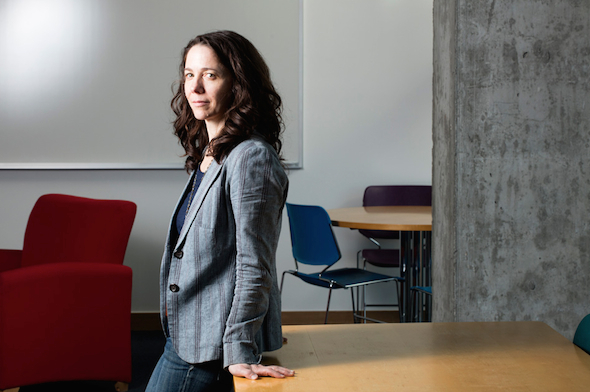BASIC RESEARCH
"What we're doing when we try to live our lives well"
Philosopher Tamar Schapiro studies how we blend reason and emotion while refining our adult selves.

9 March 2017
EXCERPT
Read the full story at MIT News.
Most of us have impulses we try not to indulge: We generally know we should not get too angry, drive too fast, or be unkind to others. And when we refrain from these things, we often congratulate ourselves for an act of willpower, in which our well-established rational side exercises its rightful veto over our nonrational instincts.
Over time, people have interpreted this tension between reason and emotion in diverging ways. One popular trope is that humans are, at our cores, rational decision makers. A different view, popularized by Romantic art and literature, is that our emotions represent our “true” selves, often stifled by reason.
To MIT philosophy professor Tamar Schapiro, however, neither view accommodates our full human complexity. What is salient about the presence of reason and impulse, in part, is that they are intertwined.
Indeed, as Schapiro has contended in a series of published papers over the last several years, we should regard our instincts as supplying the raw material that our reason acts upon. Far from thinking of our rational and emotional sides as separate, then, we should recognize that in applying reason to emotion — perhaps to calm down, slow down, or treat others well — we come to define our adult selves.
“I’m trying to give us a philosophical conception of what we’re doing when we try to live our lives well,” Schapiro says. “That is something I believe has a structure that we can anatomize in a rigorous way.”